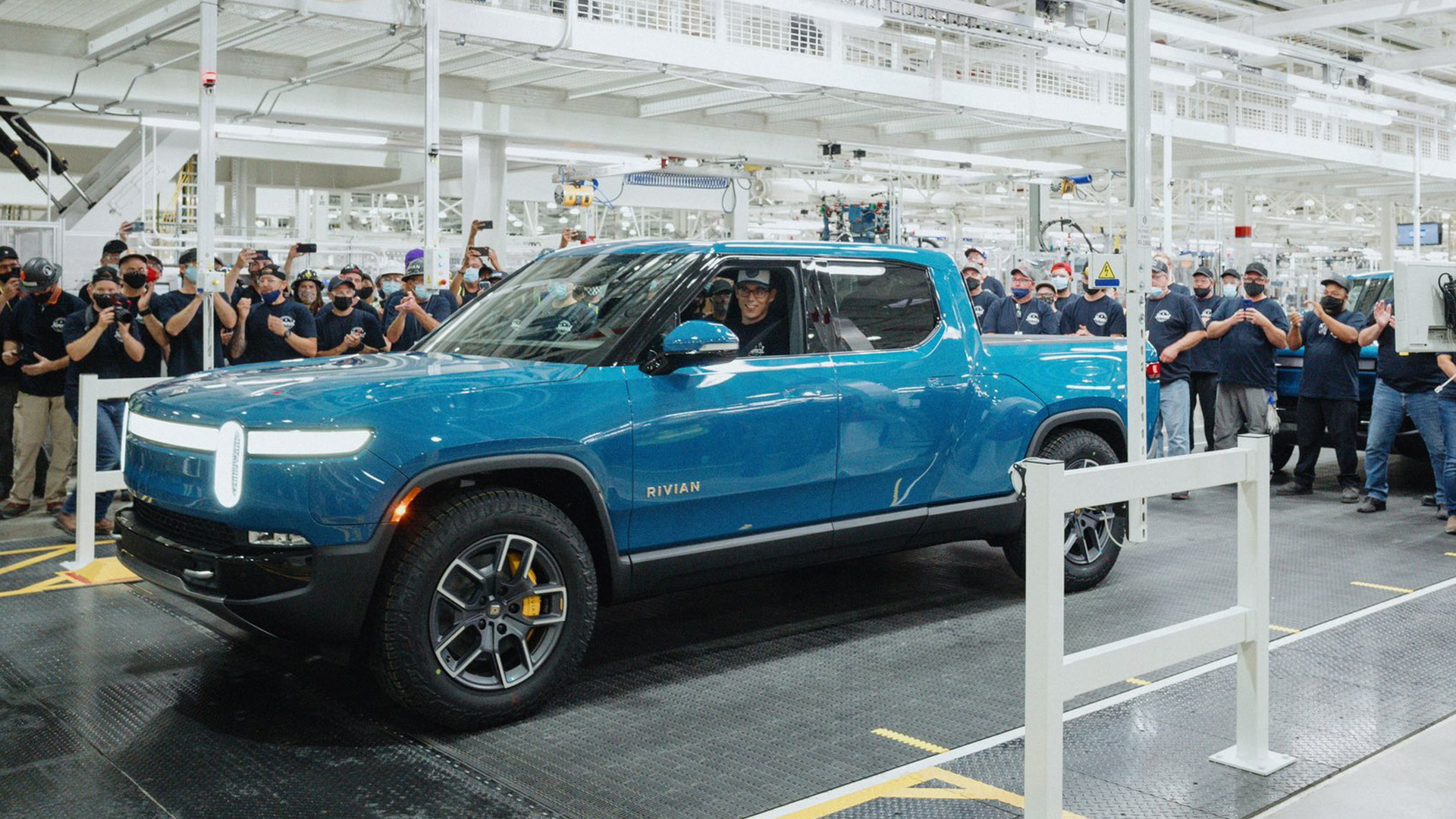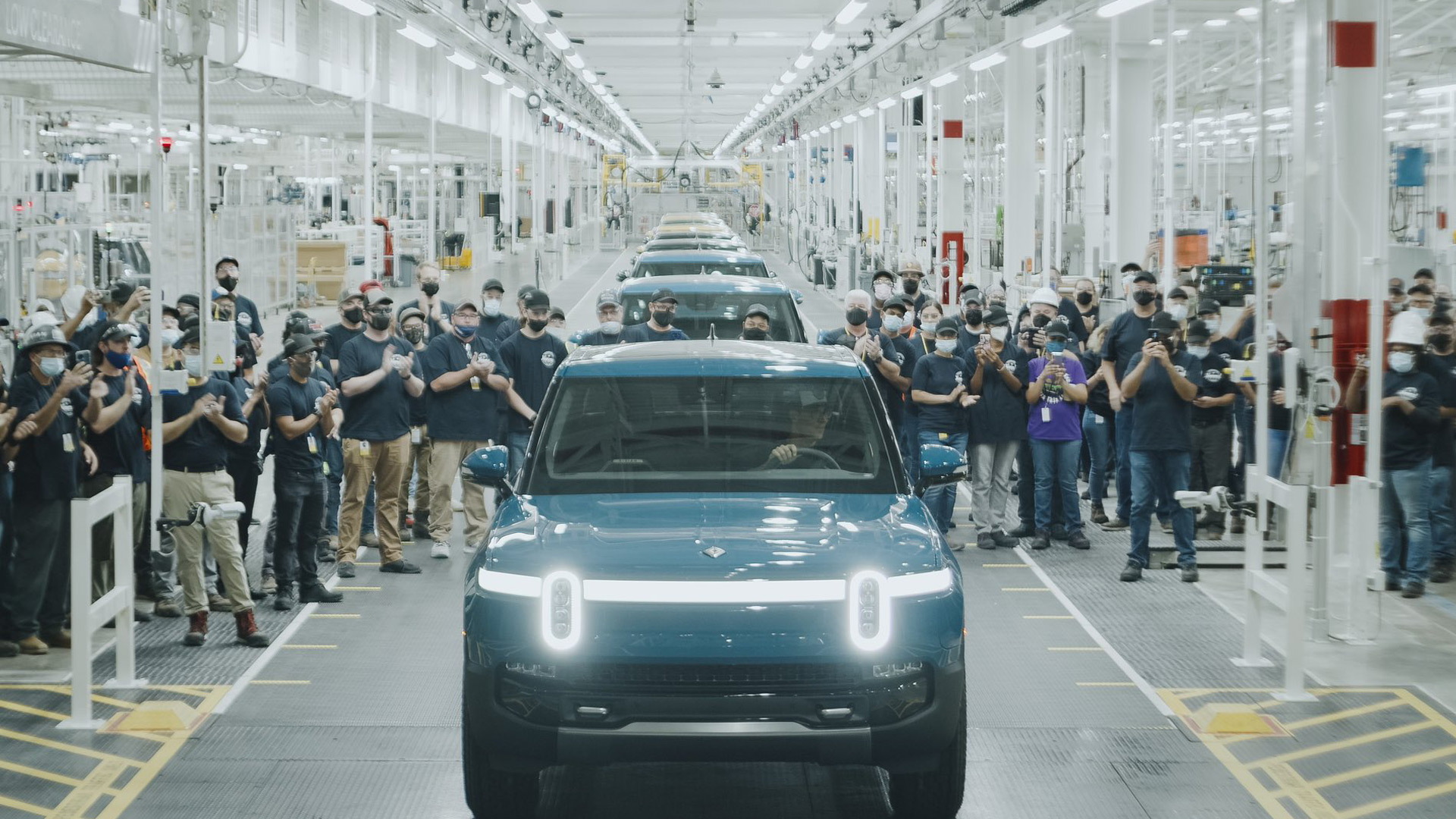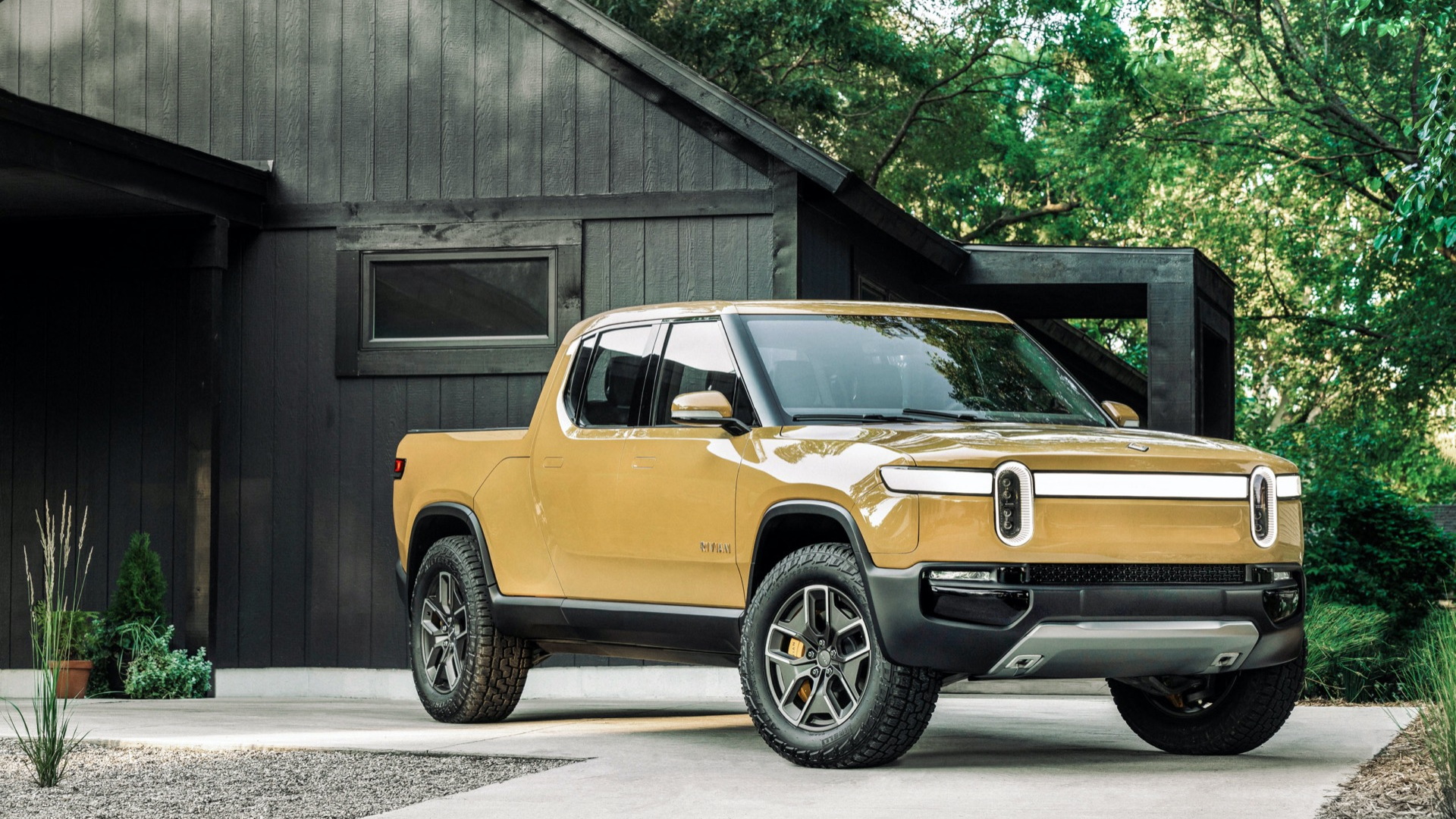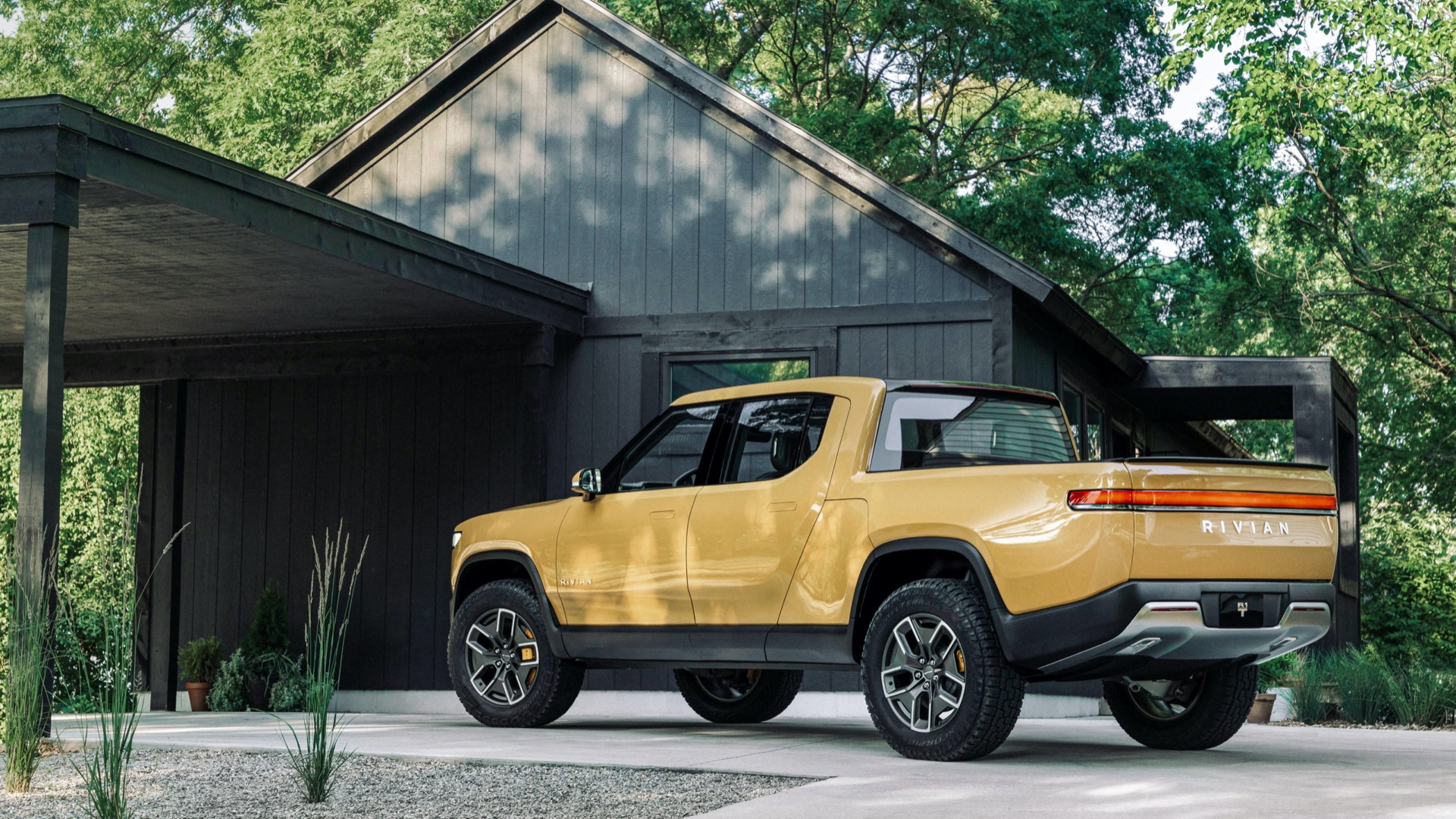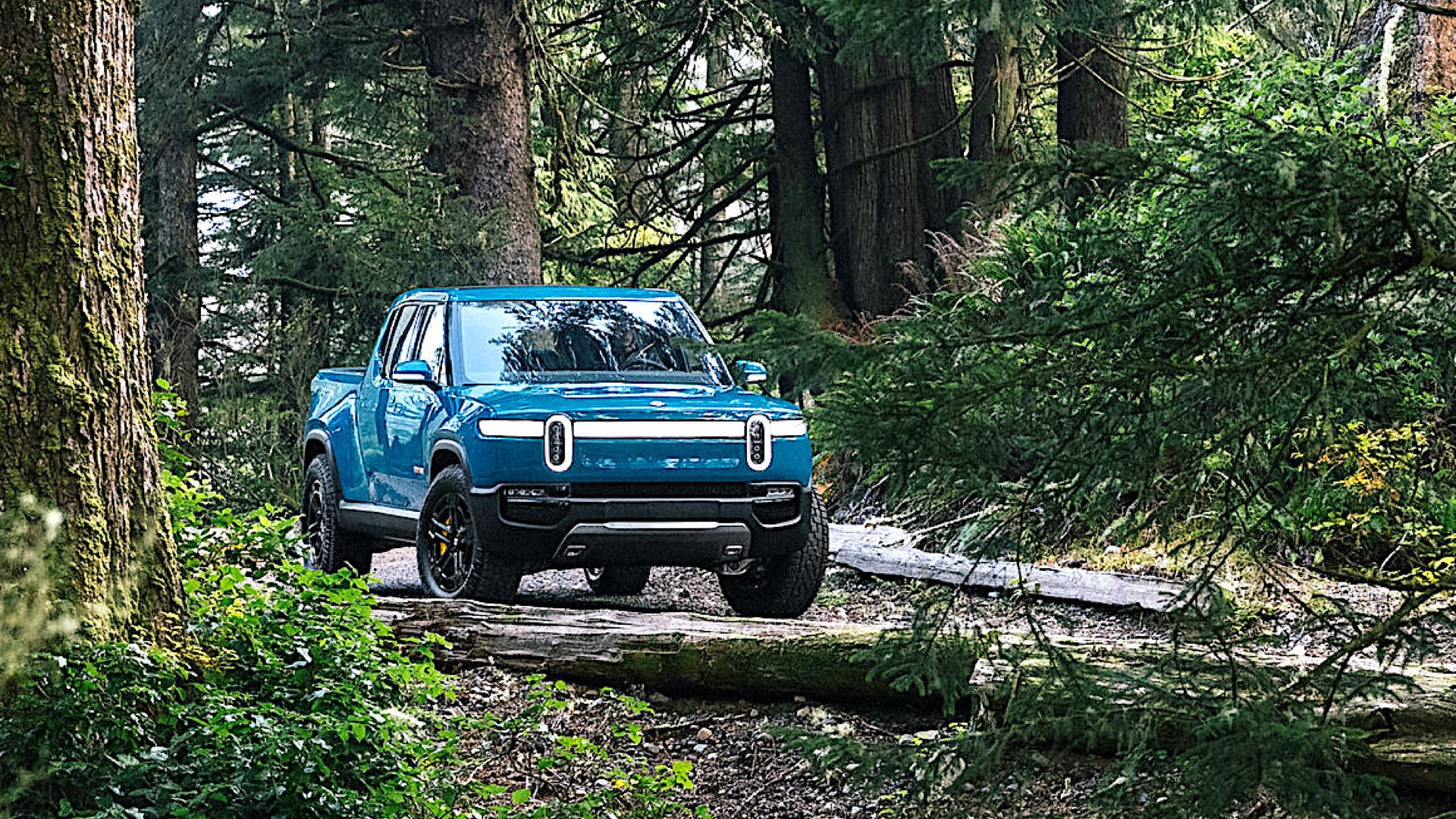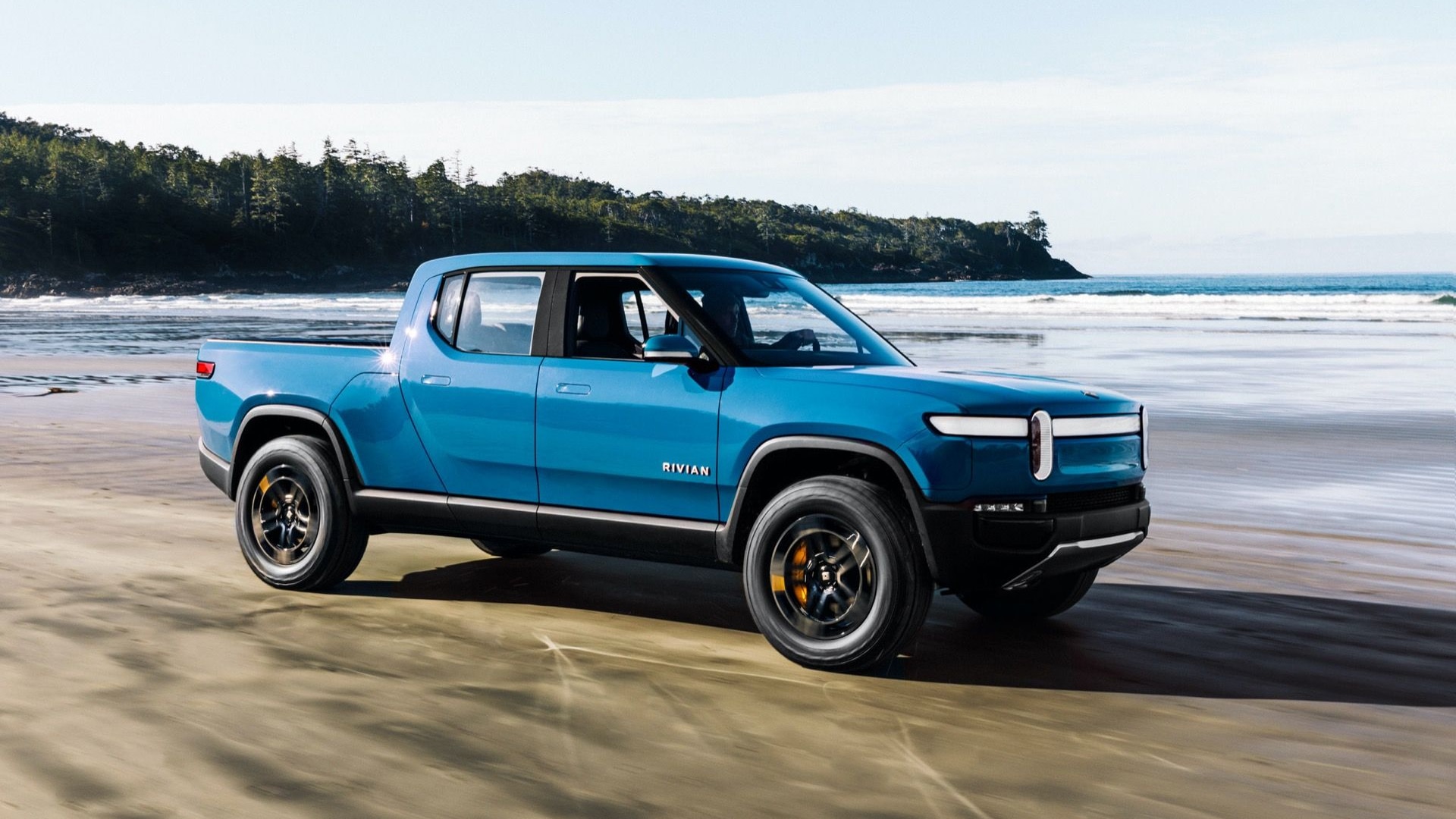The first customer examples of electric-vehicle startup Rivian's first product, the R1T battery-electric pickup truck, are now rolling off the line at the company's plant in Normal, Illinois.
Rivian CEO RJ Scaringe took to Twitter on Tuesday to post photos of the moment the first customer-bound R1T rolled off the line. Crucially, it makes Rivian the first to manufacture an electric full-size pickup.
It's been a long road to get here. The company first presented the R1T and related R1S SUV at the 2018 Los Angeles Auto Show. Deliveries were originally due to start in late 2020 but the pandemic caused delays.
Scaringe in a letter sent to reservation holders in July said R1T deliveries would start in September and R1S deliveries shortly after. Given the latest update, it appears the company is on track to meet that deadline.
After months of building pre-production vehicles, this morning our first customer vehicle drove off our production line in Normal! Our team's collective efforts have made this moment possible. Can't wait to get these into the hands of our customers! pic.twitter.com/8ZidwTaXRI
— RJ Scaringe (@RJScaringe) September 14, 2021
The R1S will also be built at the Normal plant which in a previous life built Mitsubishis. Rivian will also build delivery vans for Amazon at the site, and in July the company said it is seeking a location for a second U.S. plant, no doubt in anticipation of future additions to the lineup.
The R1T and R1S share a common skateboard platform. Buyers can choose from three different battery pack sizes, the largest of which is 180 kilowatt-hours with a stated range of more than 400 miles. However, only a mid-range 135-kwh battery is currently available. It was recently rated by the EPA at over 300 miles for both the R1T and R1S.
Only special Launch Editions of the R1T and R1S are available at present. These are priced from $73,000 for the R1T Launch Edition and $75,500 for the R1S Launch Edition. Those prices don't include destination. More affordable models priced below $70,000 will be available at a later date.
For peace of mind, Rivian offers its vehicles with impressive warranties. These include a 5-year/60,000-mile comprehensive warranty for the complete vehicle and an 8-year/175,000-mile warranty for both the battery and drivetrain. Rivian also guarantees the battery will retain at least 70% of its capacity for eight years.
